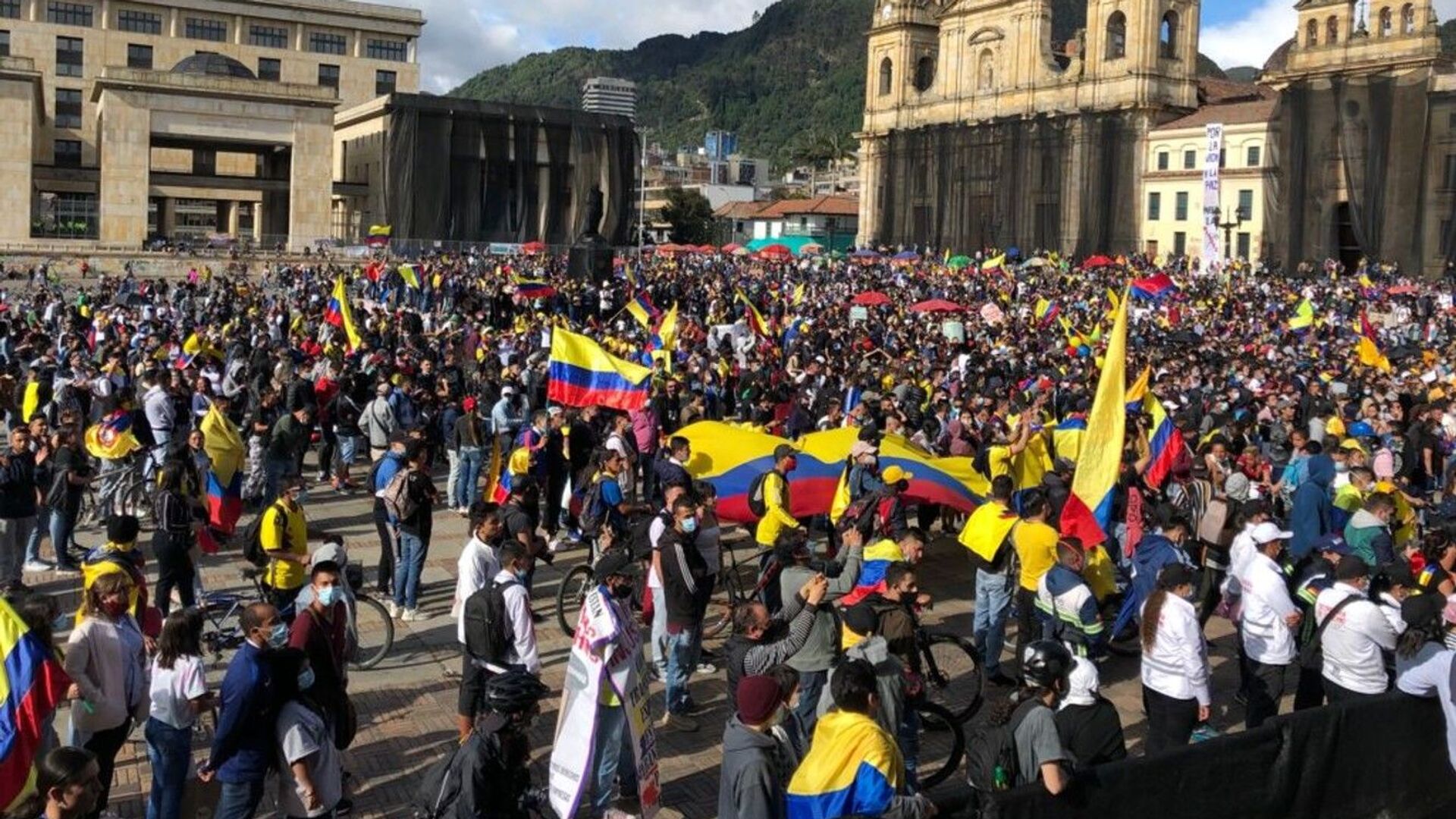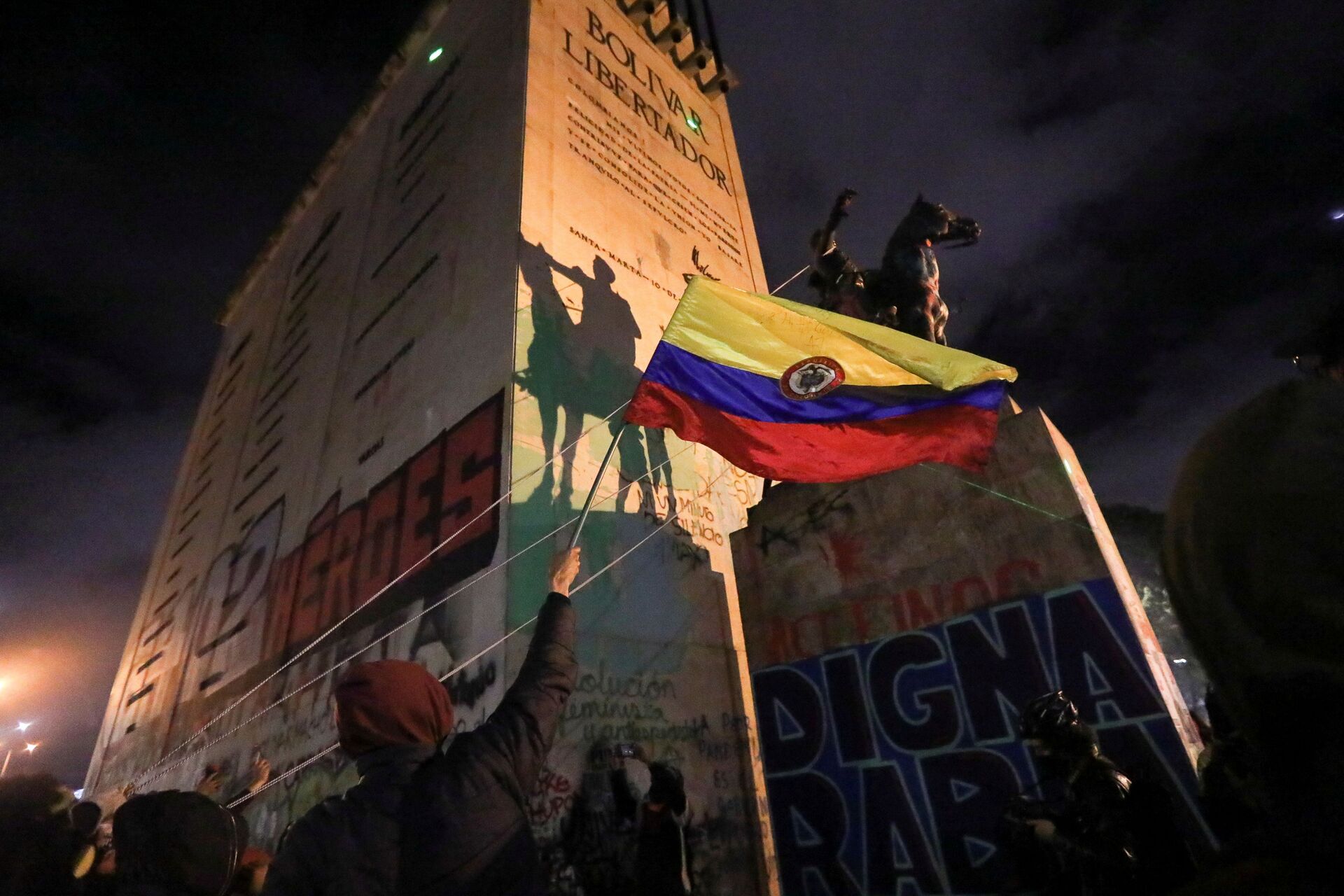Why Did British and Irish Soldiers Fight and Die to Liberate Latin America From the Spanish?
11:18 GMT 26.08.2021 (Updated: 15:15 GMT 28.05.2023)

© Sputnik / Mindia Gavasheli
Subscribe
Netflix is currently showing all 60 episodes of the barnstorming costume drama Bolivar, which tells of how Latin America was liberated from the Spanish. But a little known part of the tale is the role of British and Irish soldiers, many of whom signed up after becoming unemployed at the end of the Napoleonic Wars.
British viewers watching the Netflix drama Bolivar, starring Venezuelan actor Luis Geronimo Abreu as the eponymous hero, may be struck by the frequent use of the Union Jack and the reference to the British Legion throughout.
It is a little known fact that, just as French troops helped the United States win independence from Britain in 1783, English and Irish troops were at the side of Simon Bolivar as The Liberator wrested Venezuela, Colombia, Ecuador and Peru from Spanish control.
But it is a strange tale and owes much to the state of Europe at the time.
Between 1803 and 1815 the British Empire and its allies, Russia, Prussia and Austria, had been involved in the Napoleonic Wars, a titanic struggle with France for control of Europe and to some extent the rest of the world.
When Napoleon was finally defeated at Waterloo and exiled to the island of St Helena, the British Army suddenly downsized and tens of thousands of soldiers found themselves with no cause to fight for and facing a life of poverty and tedium.

People try to topple the statue of South American independence leader Simon Bolivar during a protest against sexual assault by the police and the excess of public force against peaceful protests, in Bogota, Colombia, May 15, 2021.
© REUTERS / LUISA GONZALEZ
Bolivar, a wealthy Venezuelan plantation owner, had visited both London and Paris as a young man and in 1817 he managed to persuade the Duke of Wellington, the victor at Waterloo, to approve the recruitment of former British soldiers to fight as mercenaries against the Spanish in Latin America.
Around 6,500 men - many of whom had learned Spanish while fighting against the French in the Peninsula War - travelled to Venezuela and became the British Legion or Legions, under the command of General James Towers English, Colonel James Rooke and Colonel Daniel O’Leary.
View this post on Instagram
Like many of those in the British Legions, all three men were Anglo-Irish.
At the time Ireland was considered part of Britain and Irishmen were a mainstay of the armed forces.
Towers English died of illness on the island of Margarita, off the Venezuelan coast, in September 1819, but in 2010 his portrait and a collection of his papers belonging to his widow, Mary, were auctioned at Bonhams in London.
#Entrevista 🗣️ | Luis Gerónimo Abreu saldó una deuda luego de ser Simón Bolívar https://t.co/4drEPIdnCZ
— Pensamientos (@FraseSimple) August 24, 2021
[Tweet: "Luis Gerónimo Abreu paid off a debt after being Simón Bolívar"]
Among the papers was a letter from Bolivar to Mrs Towers English in which he offers his condolences to a “young widow…full of afflictions, far from her country mourning the object of her heart.”
On 25 July 1819 Rooke, who had fought at Waterloo four years earlier, fought heroically alongside Bolivar at the Battle of Vargas Swamp. Rooke led a crucial bayonet charge but suffered a mortal wound.
His arm was amputated but he died three days later.
But on 7 August 1819 O’Leary led the British Legions at the Battle of Boyaca when Bolivar won his greatest victory, crushing the Spanish army in Colombia and capturing its commander, General Jose Barreiro.
On this day 1819, the combined force of Venezuela, New Grenada, and British Legions under Simon Bolivar defeated Royalist forces at the Battle of Boyacá. Bolivar and his forces were fighting for the independence of Northern South America from Spain #History pic.twitter.com/wrvtVal84A
— This Day in History (@ThisDayinHist14) August 7, 2020
O’Leary would become Bolivar’s aide-de-camp as he led an army of Latin American “patriots” to liberate what is now Ecuador and to drive the Spanish out of Peru.
Bolivar became President of Gran Colombia - a huge and unwieldy state which included Colombia, Venezuela and Ecuador - but he was forced out of power shortly before his death in 1830.
On his deathbed Bolivar asked O’Leary to burn all his letters and documents but thankfully the Dublin-born soldier, still only 29, disobeyed him and used them to write his memoirs.
'' The British Legions formed an important part of Bolívar's army, who credited them in the Battle of Boyacá, proclaiming "Those liberating soldiers are the men who deserve these laurels." #IntervencionExtranjerapositiva @realDonaldTrump https://t.co/YKwn3nnM22
— Eduardo Rincón (@AnarquiZUELA) August 30, 2020
He died in 1854 and is buried alongside his former boss, The Liberator, in the National Pantheon in Caracas, capital of what is officially known as the Bolivarian Republic of Venezuela.
Other British Legions soldiers were buried in the English Cemetery in Bogota.
Bolivar’s legacy is still debated today.
Most Colombians and Venezuelans think of him as the father of their nations, a man who helped liberate large parts of Latin America from oppressive Spanish rule.
In May this year anti-government protesters in Bogota set fire to Bolivar’s statue.

